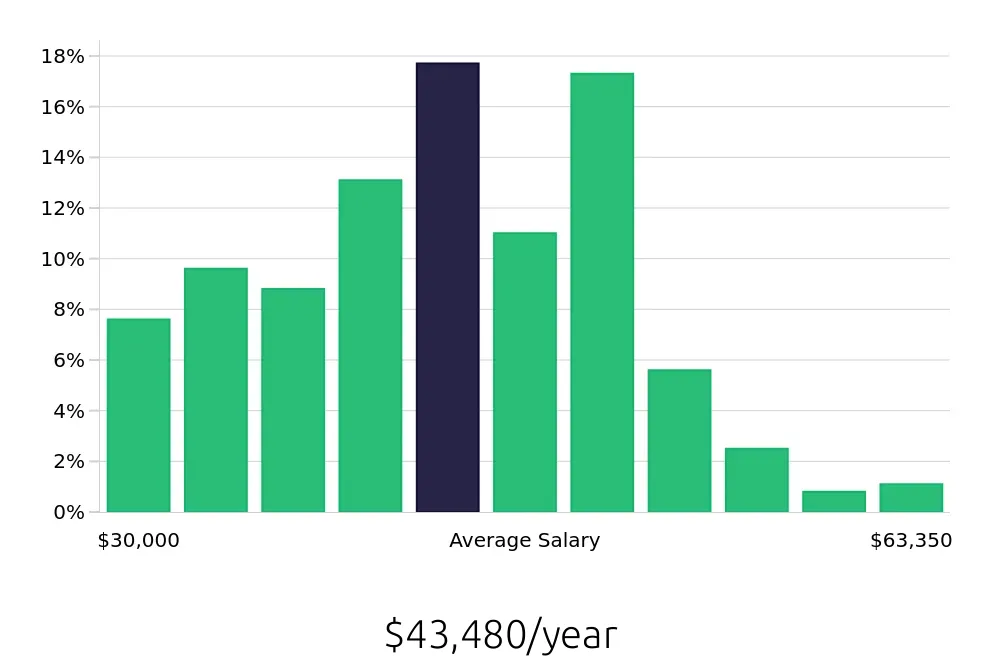Position
Overview
A Process Assistant supports the efficiency and effectiveness of business operations. This role involves working closely with team members to streamline workflows, identify areas for improvement, and implement solutions. Responsibilities may include organizing data, coordinating projects, and maintaining communication between different departments.
The Process Assistant plays a crucial part in ensuring that processes are clear, efficient, and meet company standards. This person might conduct process audits, gather feedback, and document procedures. By doing so, the Process Assistant helps to create a smoother operation that leads to better performance and higher quality outcomes.
Becoming a Process Assistant can lead to a rewarding career in supporting business operations. This role often involves streamlining processes to improve efficiency and productivity. This path requires dedication and the right steps to ensure success.
Here is a clear outline for aspiring Process Assistants:
Starting as a Process Assistant can open many doors in the business world. Each step requires effort, but the payoff can be significant. With the right approach, anyone can succeed in this role.
Interested in the role of a Process Assistant? This position often requires specific skills and qualifications, though the timeline for entry can vary. Typically, gaining these skills takes some time. Most candidates possess a high school diploma and complete some form of training. Many choose to attend a vocational school or a community college. These programs often take one to two years. Some employers may prefer or require a bachelor's degree, which can add another two to four years.
Hands-on experience also plays a crucial role. Internships or entry-level positions provide valuable practical skills. These roles can range from one to three years, depending on the industry and job market. Certification in specific processes or software can enhance job prospects. Candidates may need to spend a few months to a year obtaining these certifications. The time it takes to become a Process Assistant varies based on education, training, and experience. With dedication and the right steps, it is achievable within a few years.
The Process Assistant plays a vital role in ensuring that all business operations run smoothly and efficiently. This role is responsible for supporting and streamlining processes to enhance productivity and efficiency within the organization.
Responsibilities:
Qualifications
A Process Assistant plays a key role in many industries. They help manage and improve the efficiency of business processes. This role involves working closely with different departments. Process Assistants ensure tasks are completed smoothly and on time. They often work with data, analyze processes, and suggest improvements. Companies in manufacturing, healthcare, and tech often need Process Assistants. They help organizations run better and achieve their goals.
Being a Process Assistant has its ups and downs. Here are some to consider:
The job outlook for Process Assistants presents a promising career path for those entering the workforce. With an average of 78,100 job positions available each year, according to the Bureau of Labor Statistics (BLS), this role is steadily in demand. Though the job openings are expected to decrease by 3.5% from 2022 to 2032, this slight reduction indicates a stable and competitive market. Job seekers can expect a steady flow of opportunities if they acquire the necessary skills and experience.
In terms of compensation, Process Assistants earn an average of $42,360 per year nationwide. This figure reflects a solid annual income, offering financial stability to those who excel in the role. Hourly, the compensation stands at $20.36, making it a practical choice for those looking to balance work and life effectively. The consistent salary figures highlight the value placed on this profession within various industries, encouraging job seekers to pursue roles that can offer long-term benefits.
For those considering a career as a Process Assistant, it is essential to prepare adequately. Acquiring relevant skills, certifications, and experience will position candidates as strong contenders in the job market. The combination of steady job openings and a stable average salary makes this an attractive option for professional job seekers looking for a reliable and rewarding career.
